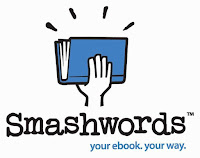Disclaimer: This post is from my own personal experience and was written to give help and advice to new writers. Again, this is how I go about publishing my books and everyone's experiences may be different. It's a bit of a long read, but I wanted to keep all of the information and links together in one place.
After recently being an Acquisitions Editor for a small press, I realized just how many writers don't edit their work... like, at all. I got several submissions that were so bad that they were actually hard to read. So, the first thing a writer needs to do is edit and revise their work.
1. Edit & Revise
I would advise you to invest a small amount of money and hire an editor. If you don't have money to spend, at least use something like Grammarly to help you polish your work. I also recommend using beta readers who will give you honest feedback. I've actually printed my manuscripts and told them they were free to mark anything that they wanted me to look at and to leave notes in the margins if they thought I should elaborate or explain something. Most of my beta readers enjoy this because they like being a part of the process and getting a first glimpse of the story before anyone else.
I know it's exciting and you want to rush things along, but you also don't want to be in such a hurry that you submit or publish a messy novel. If your manuscript is riddled with mistakes or doesn't make sense, no one will take it or you seriously.
After I get my manuscripts edited and revised, it's time to either submit to publishers/agents or start formatting, if self-publishing.
If you want to be published by a publisher:
2. Submit a Query Letter
The dreaded query letter! Nobody likes this part. Even so, if you want your book traditionally published, it must be done. You can find a lot of great information here in regard to this and how to find an agent.
The first thing you need to do once you find an agent or publisher you want to submit to is to go to their submissions page and look at their guidelines. Never skip this step! Once you research them and/or their company, as well as their authors, then it's time to query.
One thing I've learned is that there are a few things that must be in your query letter and things that I looked for as an Acquisitions Editor.
- Address your query to the person you're submitting to and do NOT submit to more than one person at that company.
- Make sure your query includes your title, genre, word count, and a short synopsis, as well as a quick bio so they will know a little about you, especially if you have a large following or fan base already established.
- Most agents/publishers like to know what books yours is comparable to, especially if it's an author or book they already represent, so list that, if applicable.
- Thank them for their time and list basic contact information.
- Make sure you follow their guidelines to perfection.
If you want help putting all of that together, check out this post.
Once you've submitted your query, all you can do is wait. Don't pester or do a follow-up email unless asked to do so after a certain period of time. If you don't hear anything back, they're not interested. For every rejection, I always send another query. You won't be published if you don't keep trying to get published.
If you want to self-publish:
2. Formatting
If I tried to dive into exactly how to do this, it would be way too long for a simple blog post (and this one is already lengthy), so I will direct you here for help on formatting your paperback book, as well as this great post, which has a lot of basic formatting information. It's where I obtained and utilized most of my information and then learned from trial and error. If you don't have time or the patience to format your book, you can always hire a book formatter, especially if your book is more intricate or has illustrations.
3. The Cover
If you're not savvy in regard to photo editing and design, I highly recommend paying someone to make a book cover for you. Like editing, this part is extremely important. People say not to judge a book by its cover but that's exactly what people do. An awesome cover can sell your book while a bad one can cause readers to keep scrolling.
There are many cover artists out there, so it shouldn't be hard to find one. A couple who have either designed a cover for me or who I like the aesthetic of are Wicked by Design and Art Lynx. Wicked designed my very first covers when my debut book series was contracted through Limitless Publishing. Art Lynx also has beautiful pre-made covers, which make the process quick and easy.
Personally, I usually do my own covers. I've thought about paying someone and saving myself the time and worry that goes into making one, yet I always end up doing them on my own. To lead you in the right direction if you want to try to do it yourself, I use PicMonkey. It's easy and I've used it so long that, even with updates, I know what I'm doing. Some people also use Canva or Photoshop, which are also great. Photoshop actually has a color setting for CMYK, which is better for print, whereas others only have RGB. Whatever you choose to use, use it wisely and get the opinions of others once you're finished. Just scrolling through covers on Amazon will give you an idea of what a professional cover looks like compared to a not-so-professional cover. More often than not, you can easily spot the difference and it's not hard to tell which one you feel more drawn to.
The hard part of designing a cover, aside from choosing the cover art, is size. If your cover isn't sized appropriately, especially for paperbacks, it will spill over into the bleed area and will have to be resized. Amazon's Cover Creator makes this pretty easy, however, it still has its issues if you're not used to making book covers. It's all trial and error until you get it right... or hire someone to get it right.
4. Publication
Marketing
The big day is closing in and you're letting everyone know you've got a new release coming out, or at least I hope you're letting everyone know. This, for me, is the hardest part of being a writer... marketing. I have an extremely hard time promoting my own books. The easiest way to overcome this is to utilize ARCs (Advance Reader Copies), book bloggers, and sites like Booksprout, Netgalley, and Hidden Gems, to name a few.
When it comes to book bloggers, be respectful. Don't contact a blogger with your book information and tell/ask them to share it, which is just rude. If you don't know any bloggers, take some time to become acquainted with the ones who like the type of book you wrote. Follow them, interact with them, and think of creative ways that will not only benefit you as a writer but will ultimately benefit them and their followers, as well. Giveaways are a great way to make everyone involved happy and it doesn't cost much money. Giveaways are my go-to marketing plan because I'm not simply telling people about my upcoming release, but I'm also generating a buzz around a giveaway. I do both ebooks and signed copies, but signed copies usually do the best. Who doesn't love a signed book?
While I keep it simple, some go all out when it comes to marketing, paying hundreds of dollars for Facebook/Instagram ads, as well as buying ads and promotions on book outlets like Book Bub. Whichever avenue you choose to take, just be wise about it and choose the one that's best for you and your book.
Distribution
Something writers may not think about is distribution. How can I get my books to as many retailers as possible? Well, unless you use KDP Select, which is exclusive to Amazon for 90 days (you can read more about it here), there are other distribution services that distribute your books to a larger market, including libraries and other book retailers, such as Apple, Kobo, Barnes & Noble, etc. The one I use that's quick and easy is Smashwords, which is free up front (they take royalties) and has worked well for my needs. Some also use IngramSpark or Draft2Digital. You can find out more about the top services here.
I also upload straight to Google Play and utilize their option to use content reviewers. Content reviewers get full access to the book for pre-publication reviews, testing, and promotions.
Beyond Release Day
A majority of your work will be behind you once release day has come and gone, however, you will still have several things to stay on top of, such as sales, reviews, continued marketing, and promotions when sales slow down... and they will, so don't panic. I try to keep my promotions relevant to the genre of book I'm promoting, such as Halloween for all of my paranormal books, for example.
This would also be a good time to do some book signings, even if it's simply one at your local library or book store. These are extremely fun and allow you to meet readers and talk about your books.
Lastly, keep your website and social media pages up to date. If you're like me and don't post a lot, at least be interactive with other accounts and maintain a presence in the book world. It's important to interact with readers and respond to any comments or questions they may have about your book. They're the ones who are buying your books, so take care of them.
I hope I've provided some information or links that you find useful. If someone has any additional tips or tricks, feel free to leave them in the comments. If there's something I've touched on that you'd like me to elaborate on in a different post, let me know and I'll do my best to do that.






No comments:
Post a Comment